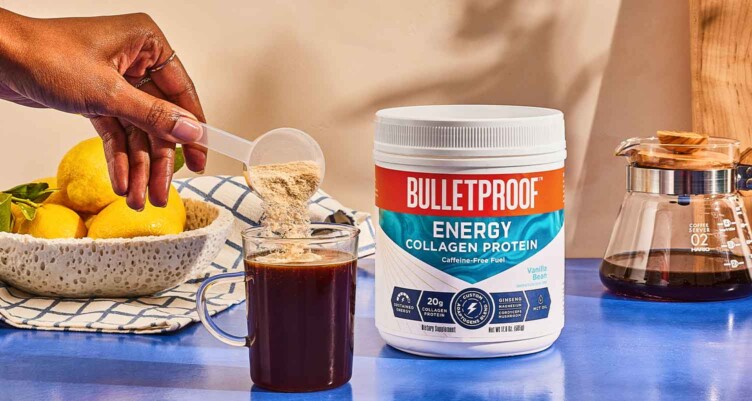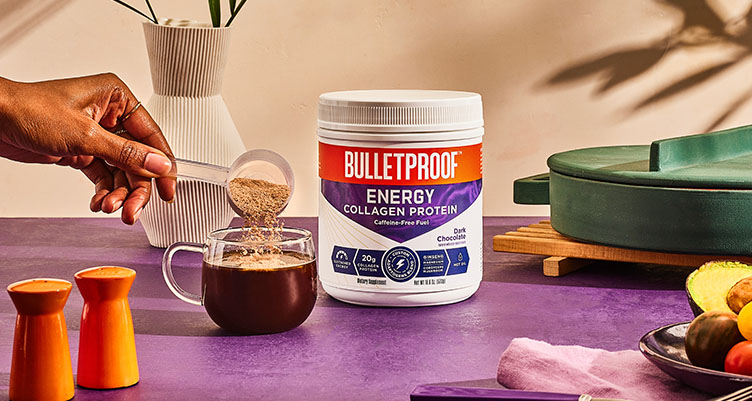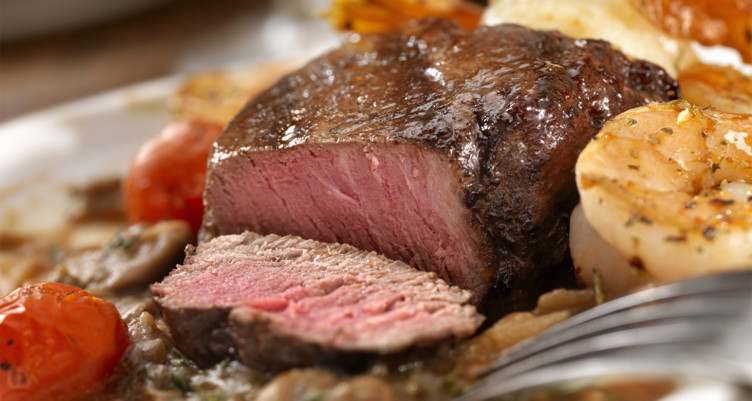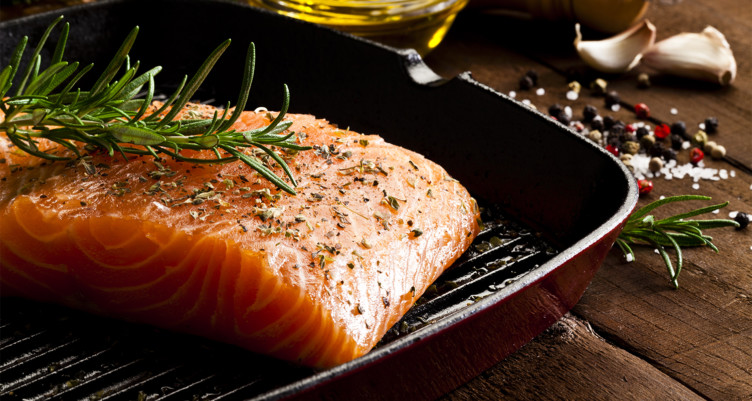Complete Proteins: What Makes a Protein Complete?

- Complete protein sources contain all nine essential amino acids. An example of a complete protein supplement is Bulletproof Energy Collagen Protein. This keto-friendly supplement contains the eight essential amino acids found in collagen, plus added tryptophan.
- While animal products provide your body with the building blocks it needs, vegans needs sources of complete proteins, too. You can access these nutrients in certain combinations of plant foods.
- Incomplete protein sources are also important to your well-being, and can provide skin, hair, nail and joint support.
What are complete proteins? Most people immediately think of chicken breast, steak, protein shakes or even eggs. While these are all common protein sources, there are so many other ways to get this critical macronutrient.
Still, one fact remains: Not all proteins are created equal.
Most animal products contain all nine essential amino acids, but nuts (including almonds and cashews) and seeds (like sunflower and pumpkin seeds) do not. As a result, they are not examples of complete proteins.
The concept of complete proteins isn’t just a trendy health and fitness term. Your body needs essential amino acids in complete protein sources to grow and repair tissue.
If you’re looking to increase your daily protein intake, it’s time to learn more about complete protein sources. Discover their benefits and how they can support your wellness goals.
What are complete proteins?

Complete proteins contain all nine essential amino acids. Amino acids are the building blocks that combine to form a protein. In total, there are 20 different amino acids that fall into three groups, including:
- Essential amino acids: Such as histidine, isoleucine, lysine and tryptophan.
- Non-essential amino acids: Like alanine, asparagine and serine.
- Conditional amino acids: Think arginine, glutamine and proline.
While our bodies produce 11 non-essential and conditional amino acids naturally, we cannot create the nine essential amino acids.
The ideal way to make sure you get these critical building blocks of protein is by eating foods that contain essential amino acids. In other words: a complete protein source.
Consuming certain foods and specific supplements that contain all nine essential amino acids brings important health benefits, too.
For example, valine plays a critical role in stimulating muscle growth and regeneration.[1] Additionally, you need leucine to help regulate blood sugar levels and produce growth hormones.[2] In addition, your skin and connective tissue depend on the presence of threonine, another essential amino acid found in complete protein sources.[3]
Bulletproof Energy Collagen Protein
Contrary to popular belief, you can access essential amino acids without heating up your oven or grill. Bulletproof Energy Collagen Protein not only provides a complete profile of essential amino acids, it also contains the nutrients you need to set yourself up for daily success. This collagen protein powder supports mind and body energy thanks to adaptogens and nutrients such as Panax ginseng, cordyceps mushrooms, magnesium and MCT oil. Plus, a single serving contains 20g of collagen protein and 0g sugar, making it a perfect addition for keto devotees.
Examples of complete protein foods

Not all proteins are created equal. Depending on the amino acid profile, some foods will fall into the “complete protein” category. Others will fall short.
When it comes to complete protein examples, the most popular types are animal products. Meat, poultry, fish and eggs contain all nine essential amino acids. (If you’re a meat-eater, give this Slow-Cooked Lamb Barbacoa recipe a try!)
Dairy products also fall into the complete protein source category. If your body tolerates dairy, this means milk and cheese hit the mark. (While grass-fed ghee and butter do not, they are still quality fats to incorporate into your diet.)
For those following a vegan diet, complete plant proteins like quinoa, are critical. You can feed your body the essential amino acids it needs via lentils (and other legumes, like peanut butter), but they must be paired with whole grains to form complete proteins. Vegans can also nourish their bodies with hummus made of protein-rich chickpeas. And, while soy products (like edamame and tempeh) are technically complete proteins, keep in mind that soy, along with beans and legumes, are not considered Bulletproof Diet-friendly.
Pro tip: If you’re aiming for a way of eating that is plant-driven but free of gluten, grains, soy and legumes, consider vegetarian keto. This diet factors in the principles of quality fats, complete proteins, minimal carbohydrates, and of course, plenty of veggies.
Complete protein sources and dietary restrictions

As you just learned, there are various ways to get your complete protein sources. But, if you’re following a specific diet, many of the above will not be suitable.
For example, keto vegetarians have to rely on non-animal protein sources while still incorporating quality fats into their diet. On the other hand, paleo eaters can’t consume soy or legumes, which removes additional routes toward getting all nine essential amino acids.
Here’s a list of complete proteins broken down into a few popular diets:
Keto low-carb diet
- Energy Collagen Protein
- grass-fed beef
- sustainable seafood
- pasture-raised poultry and pork
Paleo
- Stick to complete protein sources from animals
- bee pollen[4]
- sea vegetables.
Lacto-ovo vegetarian
- dairy
- whey protein
- cheese
- pastured eggs
Plant-based
- hemp seeds or protein powder
- chia seeds
- nutritional yeast
The overarching point here is that no matter what dietary restrictions you may have, there are still plenty of complete protein sources you can—and should—eat.
Why does the body need complete proteins?

What is a complete protein’s role in the body, and why are essential amino acids labeled as essential?
Your body needs enough protein for a variety of reasons. This vital macronutrient helps with the formation of muscle, as well as the transportation of nutrients. And, anyone who has attempted to bulk their biceps before can attest to the fact that protein is also essential in building and repairing tissue.
While it’s important to get your protein in, the amount you should consume daily varies on an individual basis. But, you can find your ideal protein intake by factoring in your body composition goal. For example, if you want to maintain the number on the scale, a good starting point is 0.4g of protein per pound of bodyweight. You may up that ratio to 1g per pound if you want to speed up recovery or burn fat.
One thing to remember is that deficiencies in any particular essential amino acid will disrupt key processes. Low-protein diets can result in decreased lean body mass and less satiation. Furthermore, protein is the most effective macronutrient that provides a satiating effect.[5] Needless to say, it’s crucial to add complete proteins into your diet so your body can operate at peak efficiency.
If you are having trouble getting enough protein to maintain your health, we recommend consulting your licensed healthcare professional for personalized advice.
Additional support from incomplete proteins
Don’t let the term “incomplete protein sources” scare you off. Just because a particular protein source doesn’t contain the nine essential amino acids doesn’t mean it can’t support your wellness goals.
Actually, incomplete protein sources, or let’s call them complementary proteins, can be useful in supporting other health and wellness goals. Specifically, collagen protein products shine when it comes to making your skin, hair and nails look their best.
What’s on the inside counts, too. Collagen protein supports the bones, joints and muscles.
There are plenty of ways to add grams of protein from collagen-based products to your diet to meet your specific macro goals. For instance, stock your pantry with:
- Bulletproof Collagen Protein: For cooking, stick to the unflavored varietal. There’s also Chocolate and Vanilla options that mix in easily with smoothies and can offer added benefits to your favorite baked goods. (If you’re in a hurry, make sure to have single-serving Bulletproof Collagen Protein Packets on hand!)
- Bulletproof Collagen Protein Plus Support: Start by taking care of your digestive system with Bulletproof Gut Health Collagen Protein. This supplement contains beneficial probiotics and prebiotics, zinc carnosine, L-Glycine and more, and dissolves easily into any drink.
- Bulletproof Collagelatin: This collagen-gelatin combo is perfect for mixing into soups as a thickening agent that also supports healthy skin, joints and bones!† You can also use gelatin made from collagen to whip up a bowl of Dark Chocolate Collagen Pudding or a batch of High-Protein Green Gummies for a sweet, nutritious treat.
- Bulletproof Collagen Protein Bars: Perfect for a post-workout replenishment or a convenient protein snack on the go, you’ll definitely want to sink your teeth into a delicious collagen protein bar, from Lemon Cookie to Chocolate Chip Cookie Dough.
The bottom line: A complete protein contains all nine essential amino acids, which are the key building blocks your body needs to not only survive but thrive. There are plenty of ways to incorporate complete protein foods into your diet, even when restrictions exist. It’s also important to remember that incomplete proteins have a place in your life, too.
Want to learn more about collagen? Check out this in-depth guide, which includes collagen-rich foods to eat, along with information on this protein’s many benefits.
Sign up for early access to sales, product launches, the latest Bulletproof news and more!
This article has been updated with new content.



